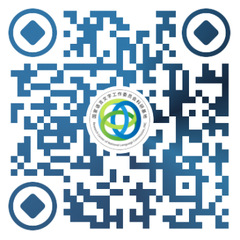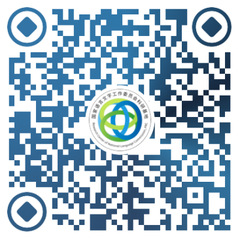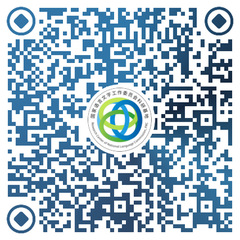Website: http://sllc.umd.edu/chinese/IACL22-NACCL26/EN
Important Dates
Abstract submission deadline: December 1 5, 2013
Notification of Acceptance: February 1, 2014 (Non-IACL members must join IACL by March 2, 2014 to be elligible to present at the conference.)
Conference dates: May 2-4, 2014
IACL-22 & NACCL-26 Abstract Submission
Abstracts are invited for talks on any fields of Chinese linguistics or linguistic studies of languages in
Abstract Format:
Abstracts should be in WORD, or in PDF if special fonts (such as IPA) are used.
Abstracts should be written in English for presentations in English or in Chinese for presentations in Chinese
For English: Please use standard Times New Roman font, size
For Chinese: Please use Song font(宋体/宋體), size
Abstracts are limited to one page (using 1 inch margins on all sides), including examples and (selected) references (using APA style).
Two copies of an abstracts should be submitted: one anonymous (with title only) and one with title, name(s), institution(s), and email address. Abstracts should include a subcategory (such as “phonology,” “syntax,” “sociolinguistic,” “applied linguistics,” “GC symposium,” etc. in the header.
The Young Scholar Award (YSA)
The YSA competition is an innovative attempt by the IACL to promote, recognize, and encourage scholarship by young scholars. It is held once a year in conjunction with the IACL annual conference.
A maximum of 5 (normally 2-4) finalists will be selected, each awarded a travel subsidy (of around $500) and invited to the IACL conference to make an oral presentation at a special session organized for this purpose, before a panel of judges chaired by the IACL President (the review committee of any given year may also recommend that no finalist be invited). The author of the best paper selected by the panel will be honored at the banquet of the annual conference and presented with an award certificate.
Eligibility:
35 years of age or below in the year of the conference.
Current rank is below that of Associate Professor in the Chinese and American university systems and below that of Senior Lecturer in the British system.
Previous award winners are not allowed to re-enter the competition.
Membership of IACL. Non-members must join IACL within 30 days of the notice of acceptance.
Submission Guideline:
A participant is required to submit a full paper of not more than 25 pages (double space) in length to the organizing committee.
Attach a letter giving his or her age in 2013 as well as his or her present academic rank.
All submissions for the YSA competition must be original papers that have not been published, accepted for publication, nor presented at a major conference and to appear in its proceedings.
The same paper submitted to previous IACL conferences should not be resubmitted.
Submission Method:
Email Submission:
Please submit both the abstract and the full paper directly to the conference email (IACL22-NACCL26@umd.edu) and include the word YSA in the subject line of the submission email.
In the body of the message, please include: Paper title, name of the author, age, affiliation and academic rank, and email address.
Submission Deadline:
The abstract and the full paper should be submitted no later than December 15, 2013. The result will be notified by February 1, 2014. Non-IACL members must join IACL within 30 days of the notice of acceptance (by March 2, 2014). The program will not include non-IACL members.
Mantaro J. Hashimoto (MJH) Award for Chinese Historical Phonology
This new award is an annual prize in the amount of US $500, donated by Professor Anne Yue in memory of the eminent linguist and Sinologist, Professor Mantaro J. Hashimoto. It is offered as an encouragement to young scholars who wish to devote themselves to the study of Chinese historical phonology, a field in which Professor Hashimoto was especially interested and to which he made numerous important contributions.
The prize will be administered as part of the Young Scholar Award process. All YSA papers submitted in the field of Chinese historical phonology will automatically be concurrently considered for the MJH Award.
Submission Guideline:
Applicants should follow the published YSA guidelines above in preparing their submissions. All regulations, restrictions, selection criteria, and judging standards current in the YSA process will apply to papers considered for the MJH Award, with the exception that MJH submissions must deal specifically with the area of historical phonology.
Submission method and deadline:
The same as those for YSA and including “MJH” in the subject line of the submission email.
The Interdisciplinary Research Award (IRA)
This award is an annual prize in the amount of US $500, established in the honor of Professor Hsin-I Hsieh for his immense contributions to the IACL and to the field of Chinese Linguistics. The award is offered as a token of encouragement to young scholars who wish to devote themselves to interdisciplinary studies in Chinese linguistics. The prize will be administered as part of the Young Scholar Award (YSA) process. All papers with an interdisciplinary approach submitted for YSA will automatically be concurrently considered for this Interdisciplinary Research Award.
Submission Guideline:
Applicants should follow the published YSA guidelines above in preparing their submissions. All regulations, restrictions, and selection criteria adopted in the YSA process will apply to the papers considered for the Interdisciplinary Research Award, with the exception that these submissions must have an interdisciplinary focus, which includes interface studies (phonology-syntax, morph-syntax, syntax-semantics, etc.), studies which combine diachronic and synchronic approaches, those that combine methodologies from different frameworks (formal, functional, typological, etc.), or those that combine linguistics and other disciplines (literature, anthropology, sociology, psychology, computer science, etc.).
Submission method and deadline:
The same as those for YSA and including “IRA” in the subject line of the submission email.
Symposium Abstract Submission
In the globalization of Chinese, an extensive shift from Chinese dialects to Putonghua is seen in Chinese diaspora communities around the world, and at the same time, Putonghua, Pinyin Romanization, and simplified Chinese characters are used as the standard in global Chinese language education. This is similar to the promotion and spread of Putonghua in
The symposium will include thematic panels for approximately 30 papers, a poster session for 10-15 undergraduate student papers, and a plenary roundtable with 7-8 distinguished scholars. It will encourage investigation and analysis of the phenomenon of vernacularization of the standard language in linguistic globalization in a cross-fertilized approach (across linguistic theory, sociolinguistic,
1) What are the grammatical features of the interlanguage produced by a heritage dialect speaker in learning Putonghua as a heritage language? Is the interlanguage influenced by both the heritage dialect and the language (such as English, French, or Malay) of the diaspora community’s resident country and how?
2) What are the grammatical features of the interlanguage produced by a non-native speaker in learning Putonghua as L2? Is this type of interlanguage similar to or different from that in (1) above if they share the same geographical location or community and why?
3) How are these types of interlanguage grammatically and theoretically related to vernacularized or varieties of Putonghua in the learners’ (diaspora and L2) communities?
4) How are local varieties of Putonghua in a diaspora community and in a L2 community in the same geographic location, say
5) How can the data concerning the above questions be satisfactorily accounted for in linguistic theory and how do the data bear on linguistic theory?
The symposium encourages heritage and Chinese as L2 undergraduate students to submit papers reflecting their own Chinese learning and using experience in relation to questions (1) or (2). The symposium will also consider high quality submissions on the vernacularization of Putonghua in dialect and minority language communities within
Abstract format: One page (APA style, Times New Roman font, 12 point, 1 inch margins on all sides) including examples and references
Abstract submission method: Send two copies (one anonymous and one with name, institution, and email address) to IACL22-NACCL26@umd.edu, including "Globalization of Chinese" in the subject line.
Abstract submission deadline: December 15, 2013
Notice of acceptance/rejection: February 1, 2014
Notice of travel assistance if funded and requested: March 1, 2014







